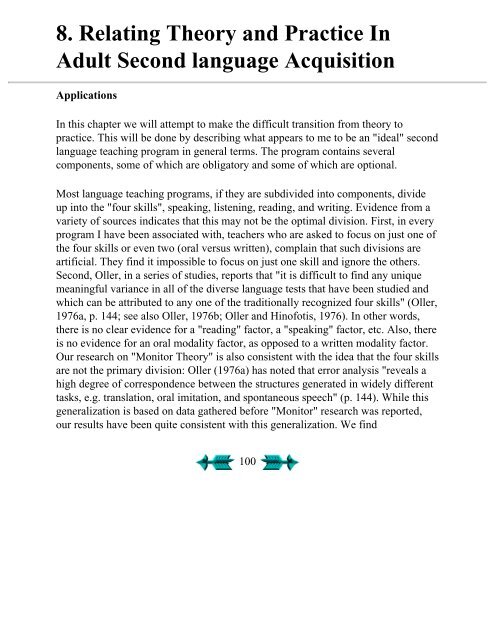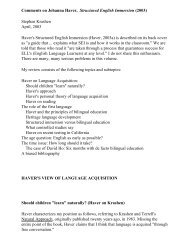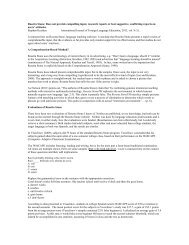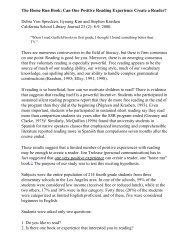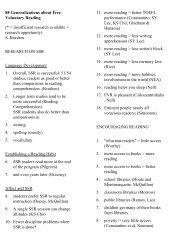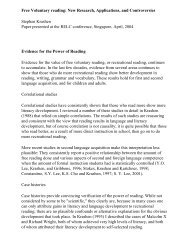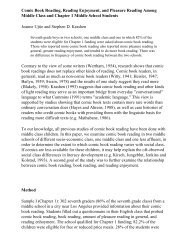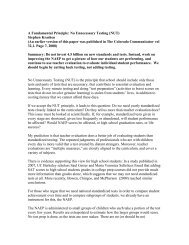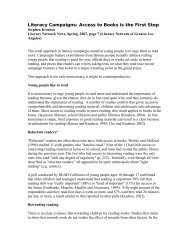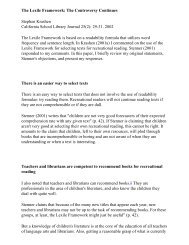Second Language Acquisition and Second ... - Stephen Krashen
Second Language Acquisition and Second ... - Stephen Krashen
Second Language Acquisition and Second ... - Stephen Krashen
Create successful ePaper yourself
Turn your PDF publications into a flip-book with our unique Google optimized e-Paper software.
8. Relating Theory <strong>and</strong> Practice In<br />
Adult <strong>Second</strong> language <strong>Acquisition</strong><br />
Applications<br />
In this chapter we will attempt to make the difficult transition from theory to<br />
practice. This will be done by describing what appears to me to be an "ideal" second<br />
language teaching program in general terms. The program contains several<br />
components, some of which are obligatory <strong>and</strong> some of which are optional.<br />
Most language teaching programs, if they are subdivided into components, divide<br />
up into the "four skills", speaking, listening, reading, <strong>and</strong> writing. Evidence from a<br />
variety of sources indicates that this may not be the optimal division. First, in every<br />
program I have been associated with, teachers who are asked to focus on just one of<br />
the four skills or even two (oral versus written), complain that such divisions are<br />
artificial. They find it impossible to focus on just one skill <strong>and</strong> ignore the others.<br />
<strong>Second</strong>, Oller, in a series of studies, reports that "it is difficult to find any unique<br />
meaningful variance in all of the diverse language tests that have been studied <strong>and</strong><br />
which can be attributed to any one of the traditionally recognized four skills" (Oller,<br />
1976a, p. 144; see also Oller, 1976b; Oller <strong>and</strong> Hinofotis, 1976). In other words,<br />
there is no clear evidence for a "reading" factor, a "speaking" factor, etc. Also, there<br />
is no evidence for an oral modality factor, as opposed to a written modality factor.<br />
Our research on "Monitor Theory" is also consistent with the idea that the four skills<br />
are not the primary division: Oller (1976a) has noted that error analysis "reveals a<br />
high degree of correspondence between the structures generated in widely different<br />
tasks, e.g. translation, oral imitation, <strong>and</strong> spontaneous speech" (p. 144). While this<br />
generalization is based on data gathered before "Monitor" research was reported,<br />
our results have been quite consistent with this generalization. We find<br />
100


